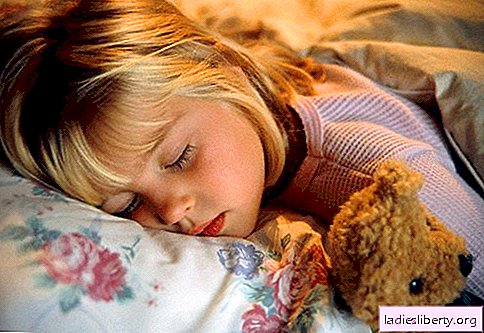
The risk of infection in young individuals is very high even with little contact with the infection. They also carry diseases more heavily than stronger animals. In order to protect the pet from serious diseases, while minimizing the risk of complications, it is important to figure out what vaccinations kittens should do and remember the rules, without which vaccination can be beneficial and not harmful.
What vaccinations do kittens
There are many infectious diseases that cats are susceptible to, it is impossible to protect the animal from all. The vaccination schedule was developed by specialists based on an assessment of the likelihood and danger of diseases. Viruses were identified, the strains of which must be included in the vaccine at the first vaccination of a kitten:
1. Calicivirus.
Symptoms
- increase in body temperature;
- discharge from the eyes and nose;
- profuse salivation;
- sneezing;
- weakness;
- weight loss;
- sores on the tongue and hard palate;
- mansion.
Method of infection:
- in direct contact with a sick animal;
- airborne droplets;
- through hands, shoes and any items;
- in utero from a cat to kittens.
Forecast: average duration: 1-3 weeks. Mortality - more than 30%. There is a high risk of accession of other viruses and bacteria, mortality in this case exceeds 80%.
2. Rhinotracheitis.
Symptoms
- increase in body temperature;
- copious purulent discharge from the eyes and nose;
- cough, hoarseness;
- accumulation of pus in the throat, causing vomiting;
- ulcers on the upper part of the tongue;
- salivation;
- swelling and inflammation of the mucous membranes;
- breathing with an open mouth.
Method of infection:
- in direct contact with an infected animal, which can retain the virus up to 9 months after healing or even be a latent carrier;
- airborne droplets;
- through hands, shoes and any items.
Forecast: mortality up to 20%. Complications of bronchitis and pneumonia, a disorder of the central nervous system and the appearance of ulcers on the skin are possible. The disease can become chronic. Pregnant cats are at high risk of having a dead offspring.
3. Panleukopenia ("cat's distemper")
Symptoms
- a significant deterioration in general condition;
- a sharp increase in temperature;
vomiting
- diarrhea, often with an admixture of blood;
- weight loss.
Method of infection:
- contact with sick or ill animals;
- through fleas or other blood-sucking insects;
- in utero from a cat to kittens.
Forecast: acute form lasts 1-10 days. With a super-acute course, sudden death of the animal is possible. Mortality among kittens is up to 90%.
4. Chlamydia
Symptoms
- increase in body temperature;
- tear, passing into purulent discharge from the eyes;
- redness of the eyes;
- violations in the digestive tract;
- runny nose, sneezing.
Method of infection:
- in contact with a sick animal or its secretions;
- airborne droplets;
- in utero from a cat to kittens.
Forecast: May turn into a chronic form. Possible infection of a person with a weakened immune system.
5. Rabies
Symptoms
- change in behavior (lethargy / aggression);
- Frequent atypically loud meow;
- cramps and paralysis;
- loss of appetite.
Manifestations depend on the form of the disease!
Method of infection:
- bite of a sick animal;
- without a bite: when saliva of an infected individual gets on damaged mucous membranes and skin integuments;
- eating a sick animal (rats, etc.).
Forecast: mortality 100%. There is no treatment; a sick animal must be euthanized.
Also, vaccinations are sometimes given against infectious peritonitis (from 4 months), trichophytosis and microsporia.
All these infections, like many others, even not dangerous for adult animals, can cause the death of a young individual or cause a malfunction and pathology in the future. Therefore, it is imperative to instill a kitten from them.
At what age should a kitten be vaccinated?
Experts recommend starting vaccination from 2-3 months. 23 days after the first vaccination, the kitten needs to be revaccinated - re-enter the same vaccine. Vaccination against rabies does not require revaccination and is carried out simultaneously either with the introduction of the complex vaccine for the first time, or during revaccination.
Subsequently, vaccination should be carried out once a year throughout the life of the pet.
When to postpone the first vaccination of a kitten
Consider in what cases it is impossible to vaccinate a kitten even when he reaches the required age:
· The presence of worms, fleas, ticks;
Increased body temperature
Discharge from the eyes, nose;
· Diarrhea and other disorders in the digestive tract;
Itching in the ears;
Recent contact with a sick animal
· Antibiotic treatment and 2 weeks after the end of treatment;
· Postoperative and rehabilitation period.
If any other signs of malaise are found, vaccination should also be postponed, only a healthy animal can be vaccinated.
Vaccination rules
So that vaccination does not harm a young fragile body, the following rules must be observed:
1. Do not violate the timing of vaccination and revaccination;
2. Use vaccines approved by experts;
3. Make sure that the terms and rules of storage of the administered vaccine are not violated;
4. 10 days before the first vaccination, it is imperative to carry out deworming - therapeutic and preventive measures to rid the kitten of worms. During this time, it is important to carefully monitor the feces of the animal. If parasites are found in them, then after 10 days it is necessary to re-give the animal an anthelmintic (similar or different). If no visual parasites were found, vaccination can be done.
5. Do not plan operations for the post-vaccination period (at least three weeks, preferably more). Allowed only emergency surgery, without which you can not do.
6. Avoid stress during the week before and after vaccination.
7. For the first vaccination, it is better to invite a specialist at home to avoid infection of the pet in the veterinary clinic.
8. Vaccination must be done as delicately as possible so as not to frighten the animal and not cause stress.
Vaccine Complications
Even when vaccinated by a qualified specialist in compliance with all necessary rules, the animal is not immune from the development of complications. Among the possible problems, the most common are allergic reactions. They can manifest as profuse salivation and lacrimation, fever, edema, indigestion, redness of the injection site, and general condition worsening. The most dangerous allergic reactions are most often detected in the first minutes after an injection. Therefore, it is better if, after administration of the drug, the veterinarian monitors the condition of the animal for about 15 minutes, so that in case of danger immediately take action. If the pet has an allergy, it is necessary to remember the name of the administered vaccine and the next time use its analogue. Moreover, the deterioration of the state of the animal after vaccination does not always mean that the drug is not suitable for it. If the manifestations are within the norm, then they can be considered a natural reaction of the body, fighting infection and developing immunity. In each case, it is better to consult a veterinarian.
Having figured out at what age and what vaccinations a kitten needs to do, the breeder gets the opportunity to protect his pet from many unnecessary problems. A competent specialist will help dispel any doubts as to whether a particular animal can be vaccinated, and to help distinguish complications from a normal response to a vaccine.











